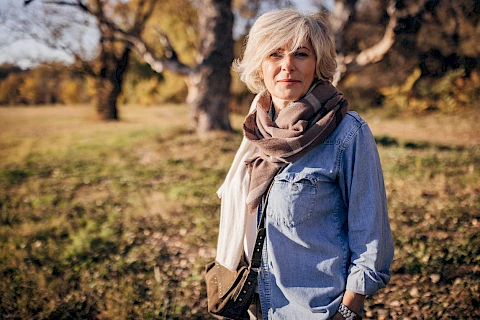
As temperatures drop and winds pick up, many people notice their skin feels rougher. For seniors, this seasonal change can be particularly harsh. Our skin is our body's largest organ, and taking care of it becomes even more crucial as we age. Understanding why cold wind affects their skin more severely can help them protect it during these chilly months. Senior Helpers Mesa aims to provide more insight into how seniors can protect their skin during the cold season.
Senior Skin Is Especially Delicate
Our skin changes as we age, impacting how it reacts to different environmental factors. One fundamental change is decreased oil production. Younger skin produces enough oil to maintain moisture, but this production slows down as we age. This lack of natural oils leads to dryness and increased vulnerability to the elements.
Senior skin also becomes thinner with age. The protective layers that once easily repelled environmental stressors become less effective. Reduced oil and thinner skin make seniors more sensitive to wind, sun, and other harsh conditions.
The Impact of Cold Wind
Cold wind is especially tricky because it decreases the skin's ability to retain moisture. When cold wind hits the skin, it strips away moisture faster than you might think. Scientifically, wind increases the evaporation rate on the skin's surface, leading to rapid dehydration.
For seniors, this means experiencing dry, chapped skin much quicker. Wind-chapped skin often feels rough and can itch or even crack, causing discomfort and possibly leading to infection if not cared for properly.
Factors That Aggravate Skin Dryness
Not only does the wind dry out the skin, but other aspects of cold weather can worsen things. Low humidity levels are a big problem, as dry air contributes to skin dehydration. Indoor heating, which might feel cozy, further dries the air and your skin.
Pre-existing skin conditions can make matters worse. Conditions such as eczema or psoriasis often flare up in colder weather. Lifestyle factors, like insufficient water intake or poor diet, can also worsen skin dryness.
Protective Measures for Seniors
Protecting senior skin during cold months requires diligence. Staying hydrated and properly moisturizing can help maintain skin health. Ensure regular fluid intake and apply a rich moisturizer to the skin regularly, especially before going outside.
A winter skincare routine is essential. Use gentle cleansers and avoid long, hot showers to prevent stripping the skin of its natural oils. Apply moisturizers immediately after washing to lock in moisture.
Clothing choices can provide an additional layer of protection. Scarves, hats, and gloves help shield the skin from direct wind exposure, particularly on the hands and face, the most exposed.
Practical Tips for Skin Care
Choose products labeled "hypoallergenic" and those containing ingredients like hyaluronic acid, ceramides, and glycerin, which help retain moisture. Use oatmeal baths or coconut oil for soothing relief of dry skin.
Apply natural solutions like aloe vera or honey masks as gentle yet effective hydrators. Consult a dermatologist or healthcare provider if dryness leads to cracked skin or if persistent issues arise.
Senior Helpers Can Assist With Senior Skincare
Cold wind and bad weather don't need to take a toll on senior skin. Understanding how age affects our skin and taking simple protective measures can help maintain its health through the colder months. By incorporating proper skin care, hydration, and protective clothing, seniors can effectively combat the harshness of cold weather.
For more personalized advice and solutions in senior care, contact us at Senior Helpers Mesa. Our team is here to support seniors in Mesa, Apache Junction, Scottsdale, Fountain Hills, and Cave Creek, helping maintain not just skin health but overall well-being throughout the year.